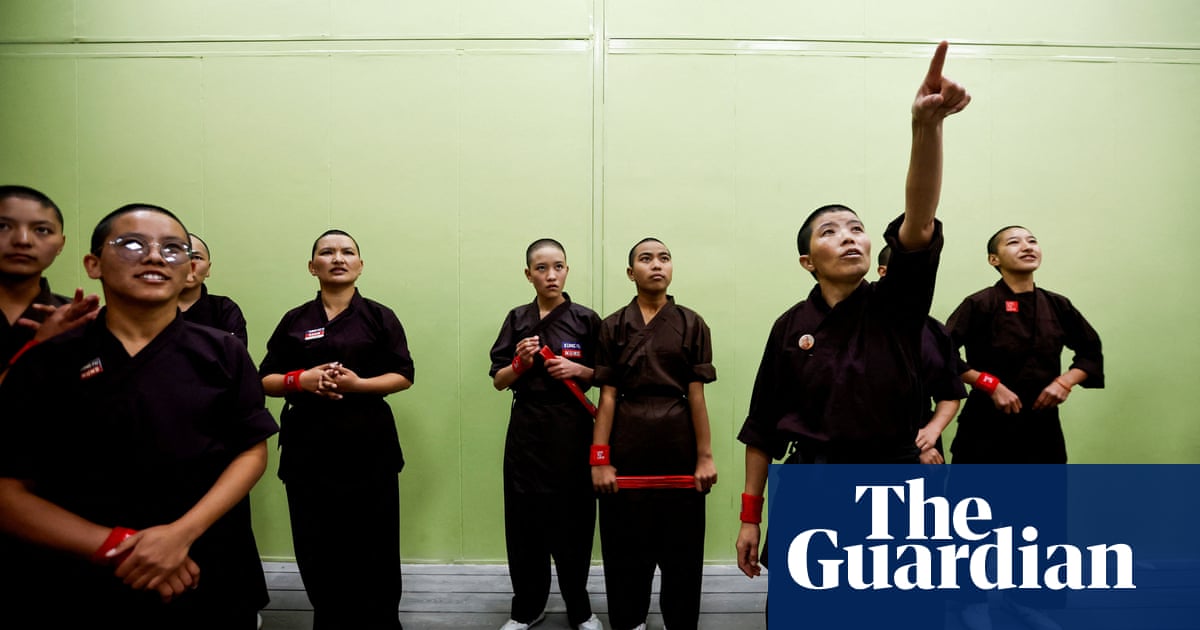Photo credit: www.theguardian.com
Kung Fu Nuns Celebrate Reopening of their Monastery in Nepal
In a vibrant display of martial arts, approximately a dozen nuns demonstrated their kung fu abilities, performing hand chops and high kicks, some even wielding swords, to an enthusiastic crowd during the reopening ceremony of their nunnery in Nepal.
The nuns from the Druk Amitabha monastery hosted the event to commemorate the institution’s revival, following a five-year closure prompted by the Covid-19 pandemic.
This unique group of kung fu practitioners, aged between 17 and 30, belongs to the Drukpa lineage, a tradition that has operated for over a millennium. This lineage is notable for granting nuns equal status to monks, marking it as a progressive force within a predominantly male-oriented Buddhist monastic framework.
Traditionally, nuns have been relegated to domestic roles such as cooking and cleaning, with little to no opportunity for practicing martial arts. However, a notable shift occurred when His Holiness Gyalwang Drukpa—a respected figure in Tibetan Buddhism—initiated kung fu training for women to aid in their health and spiritual growth.
Founded in 2009, the nunnery now boasts a membership of 300 women aged from six to 54. “Our practice of kung fu helps us maintain our mental and physical fitness, and we aim to promote women’s empowerment and gender equality,” expressed Jigme Jangchub Chosdon, a 23-year-old nun from Ladakh, India.
Representing a range of countries including Bhutan, India, and Nepal, these nuns are all trained in kung fu, a martial art that emphasizes self-defense and physical resilience.
“The confidence I’ve gained from kung fu inspires me to assist the community, especially young girls, in discovering their own strength,” stated Jigme Yangchen Gamo, a 24-year-old nun hailing from Ramechhap, Nepal.
According to the nunnery’s official website, the emphasis on gender equality, physical capability, and respect for all living beings illustrates the order’s commitment to returning to its “true spiritual roots.”
Source
www.theguardian.com

